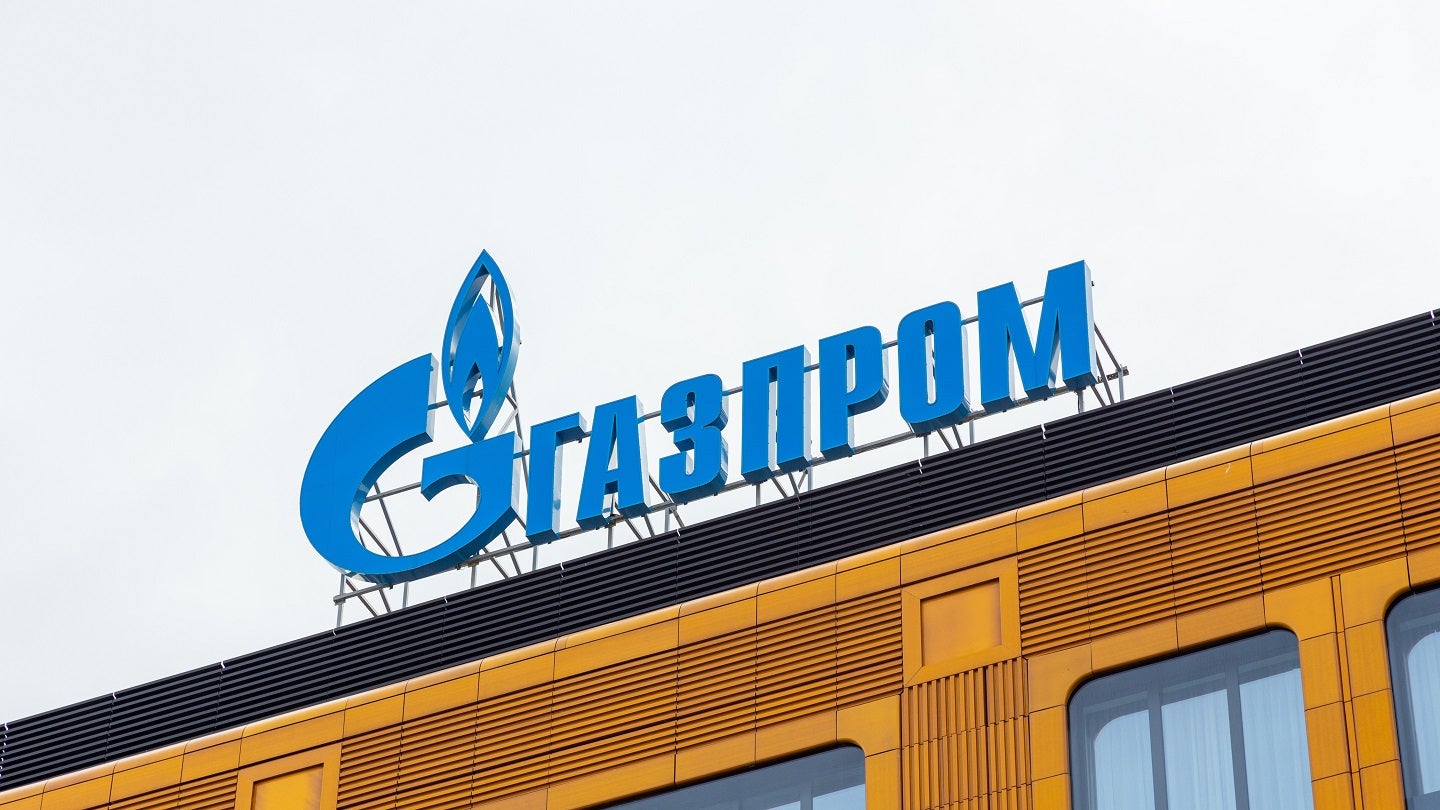
Gazprom has posted its biggest losses in at least a quarter of a century after gas sales more than halved since the outbreak of the war in Ukraine in 2022.
The Russian state-owned energy giant made a loss of Rbs629bn ($6.9bn) in 2023, after declining sales in Europe led to an almost 30% fall in revenue to Rbs8.5trn, according to the Financial Times (FT). Gas sales dropped from Rbs8.4trn to Rbs4.1trn.

Discover B2B Marketing That Performs
Combine business intelligence and editorial excellence to reach engaged professionals across 36 leading media platforms.
Gazprom’s Moscow-listed shares fell more than 4.4% on the news, with analysts telling the FT that the company had failed to adapt to losing the EU market.
Revenues from gas sales outside of Russia fell from Rbs7.3trn in 2022 to Rbs2.9trn in 2023.
As Europe has sought out alternative energy sources, it has reduced Russia’s share of its gas imports from 40% in 2021 to 8% in 2023, according to EU data.
According to Reuters analysis, it was Gazprom’s first annual loss since President Vladimir Putin’s ally Alexei Miller took over the company in 2001. In the late 1990s, the company made heavy losses after it amassed large foreign currency debts that were inflated in rouble terms by the financial crisis of 1998.

US Tariffs are shifting - will you react or anticipate?
Don’t let policy changes catch you off guard. Stay proactive with real-time data and expert analysis.
By GlobalDataBoth Ukraine and the EU said they are not willing to prolong the Russia-Ukraine gas transit deal, under which Russia pays Ukraine to export gas to Europe via its gas pipeline network. The deal is set to expire at the end of 2024.
However, speaking to Offshore Technology at the 26th World Energy Congress in Rotterdam last week, Tatiana Mitrova, research scholar at Columbia University’s Centre on Global Energy Policy, said: “Both Ukraine and Russia need the transit deal. For Russia it is important as it provides some revenue, and it allows it to supply countries which are important from a geopolitical point of view such as Austria and Hungary. Ukraine needs the Gazprom flows to support pressure inside the gas system, as without this, you cannot pump anything.”





